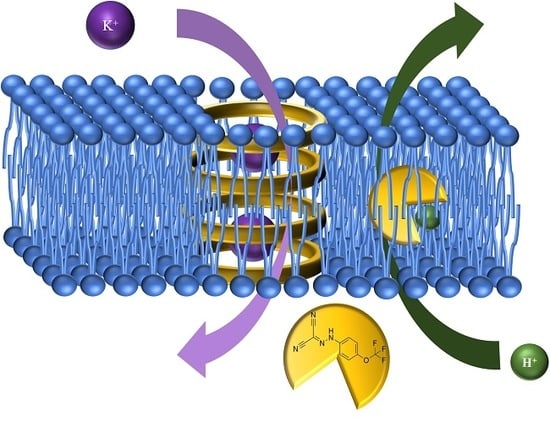Selective Proton-Mediated Transport by Electrogenic K+-Binding Macrocycles
Abstract
Share and Cite
Li, Y.-H.; Zheng, S.-P.; Wang, D.; Barboiu, M. Selective Proton-Mediated Transport by Electrogenic K+-Binding Macrocycles. Chemistry 2020, 2, 11-21. https://doi.org/10.3390/chemistry2010003
Li Y-H, Zheng S-P, Wang D, Barboiu M. Selective Proton-Mediated Transport by Electrogenic K+-Binding Macrocycles. Chemistry. 2020; 2(1):11-21. https://doi.org/10.3390/chemistry2010003
Chicago/Turabian StyleLi, Yu-Hao, Shao-Ping Zheng, Dawei Wang, and Mihail Barboiu. 2020. "Selective Proton-Mediated Transport by Electrogenic K+-Binding Macrocycles" Chemistry 2, no. 1: 11-21. https://doi.org/10.3390/chemistry2010003
APA StyleLi, Y.-H., Zheng, S.-P., Wang, D., & Barboiu, M. (2020). Selective Proton-Mediated Transport by Electrogenic K+-Binding Macrocycles. Chemistry, 2(1), 11-21. https://doi.org/10.3390/chemistry2010003







